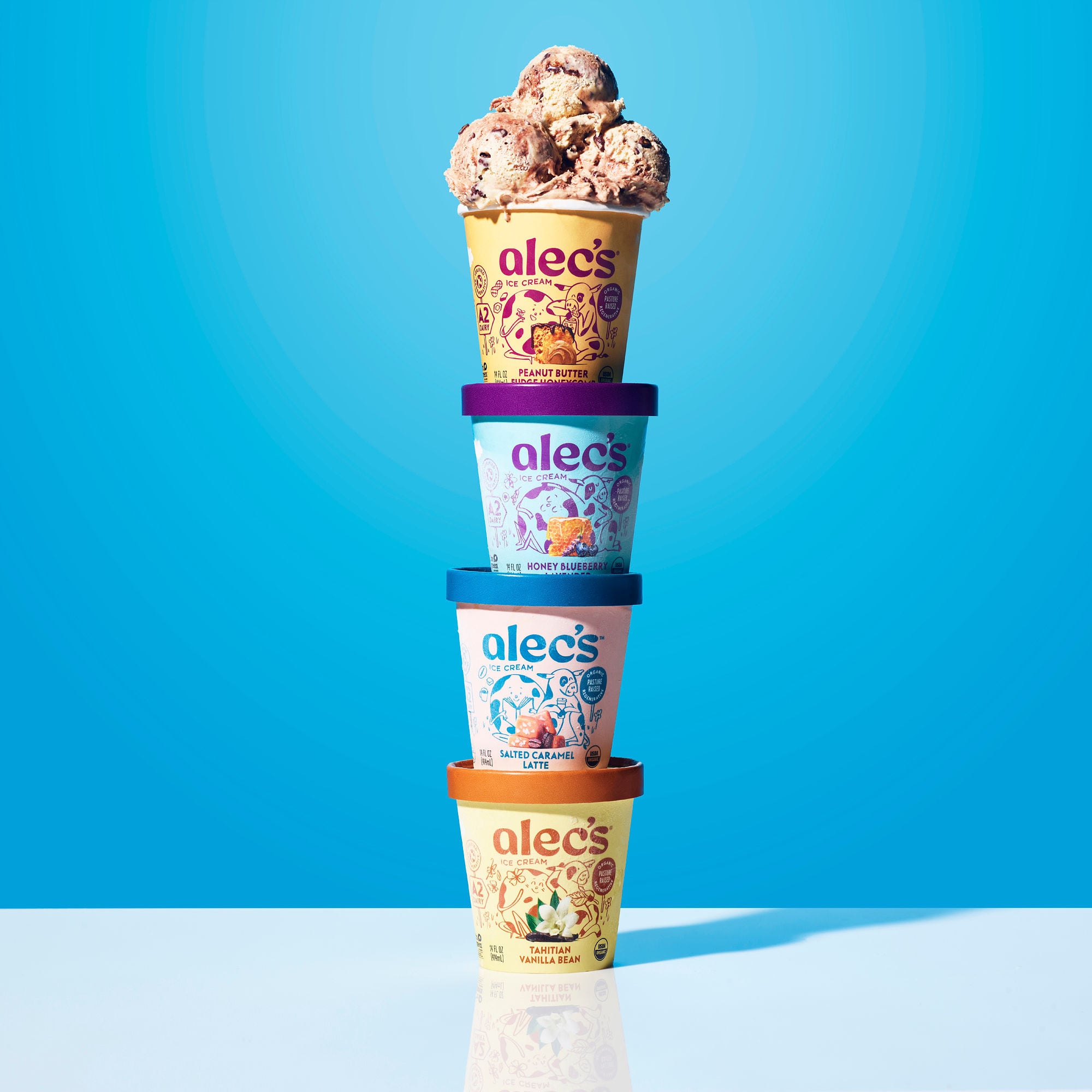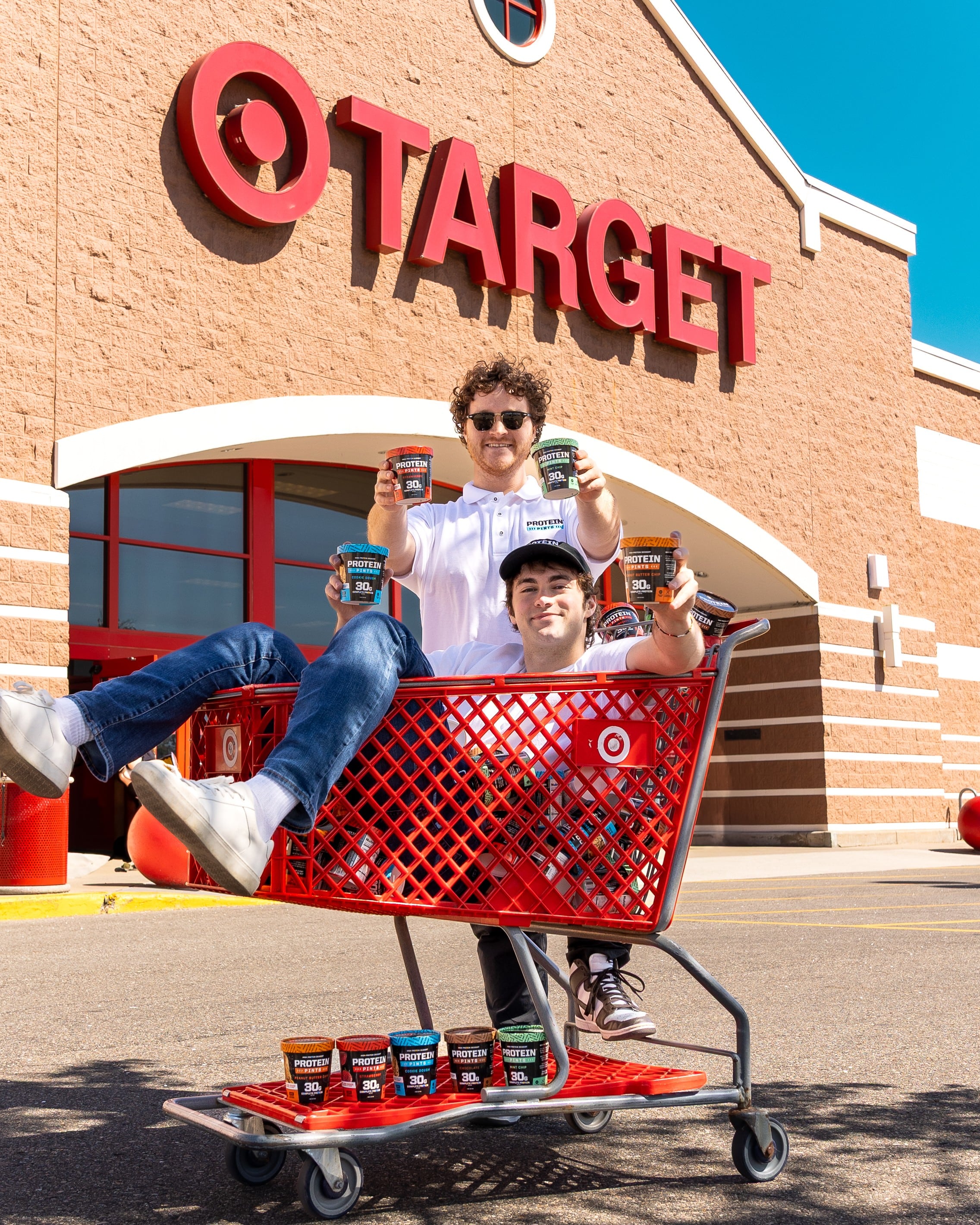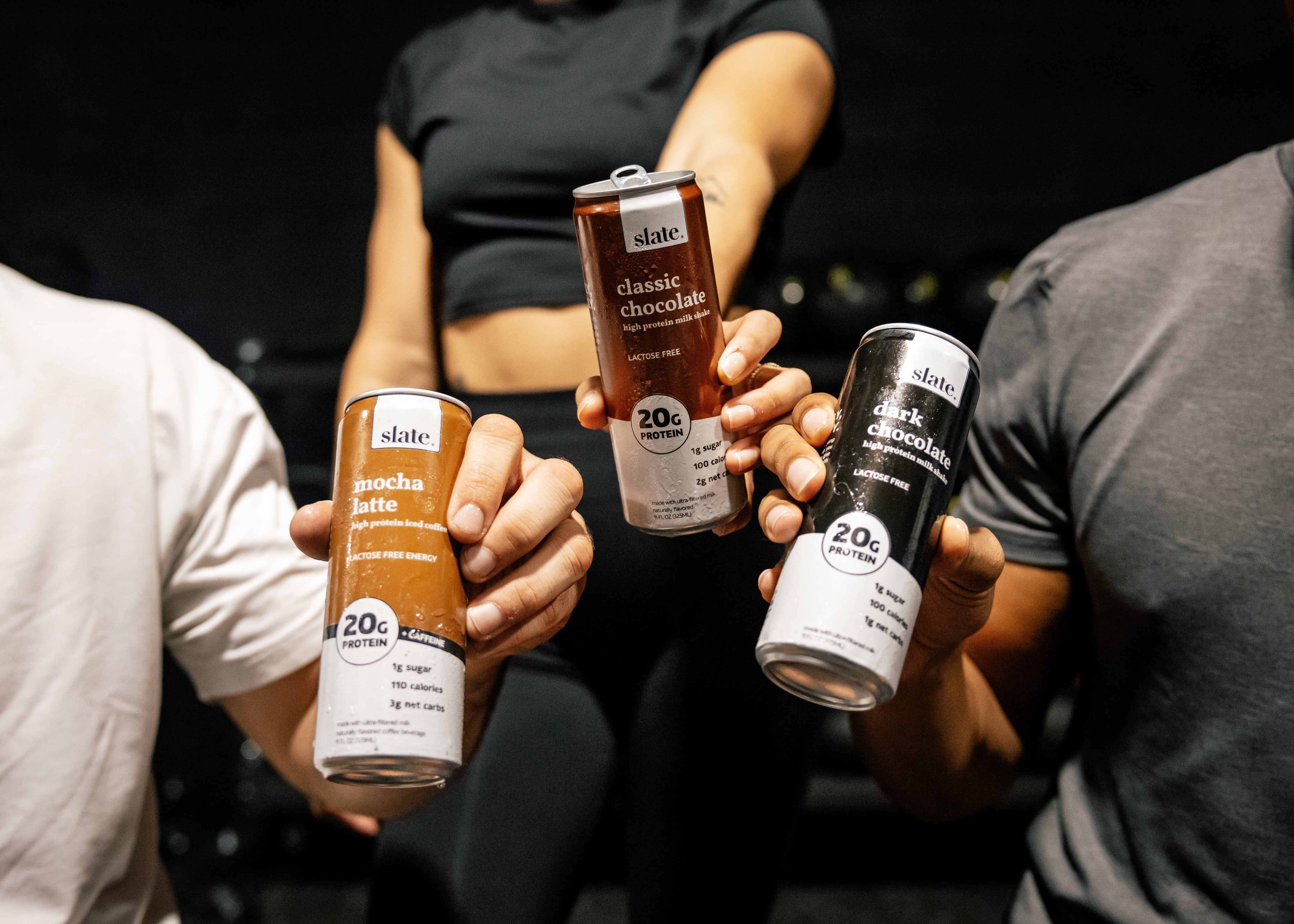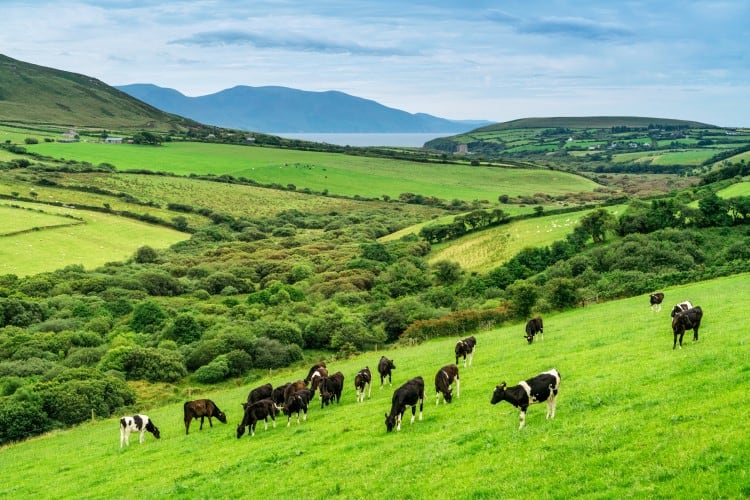About Pioneers
This piece forms part of an article series spotlighting emerging players in the functional dairy space.
See also: Slate Milk / Protein Pints
Alec Jaffe isn’t unlike many aspiring entrepreneurs before him – but his ice cream company sure has a USP. Having taught himself how to make ice cream for a school project, he carried that passion into adulthood.
Coming from a family that was involved in sustainable agriculture, he also knew the value of sustainable ingredients and the challenges suppliers face.
Before turning his passion into a job, he was working at a soon-to-be-shut-down tech start-up when he had an epiphany.
“I was thinking about what I wanted to do and recognized that there wasn’t an ice cream that both tasted amazing and matched the values that I was looking for from a product,” Jaffe told us. “So I started working on recipes at home, and then eventually found a shut-down ice cream factory in Sonoma County, California.
“We moved in there in January 2020 and started manufacturing. It was a big challenge because the dairy supply chain got completely turned upside down.”
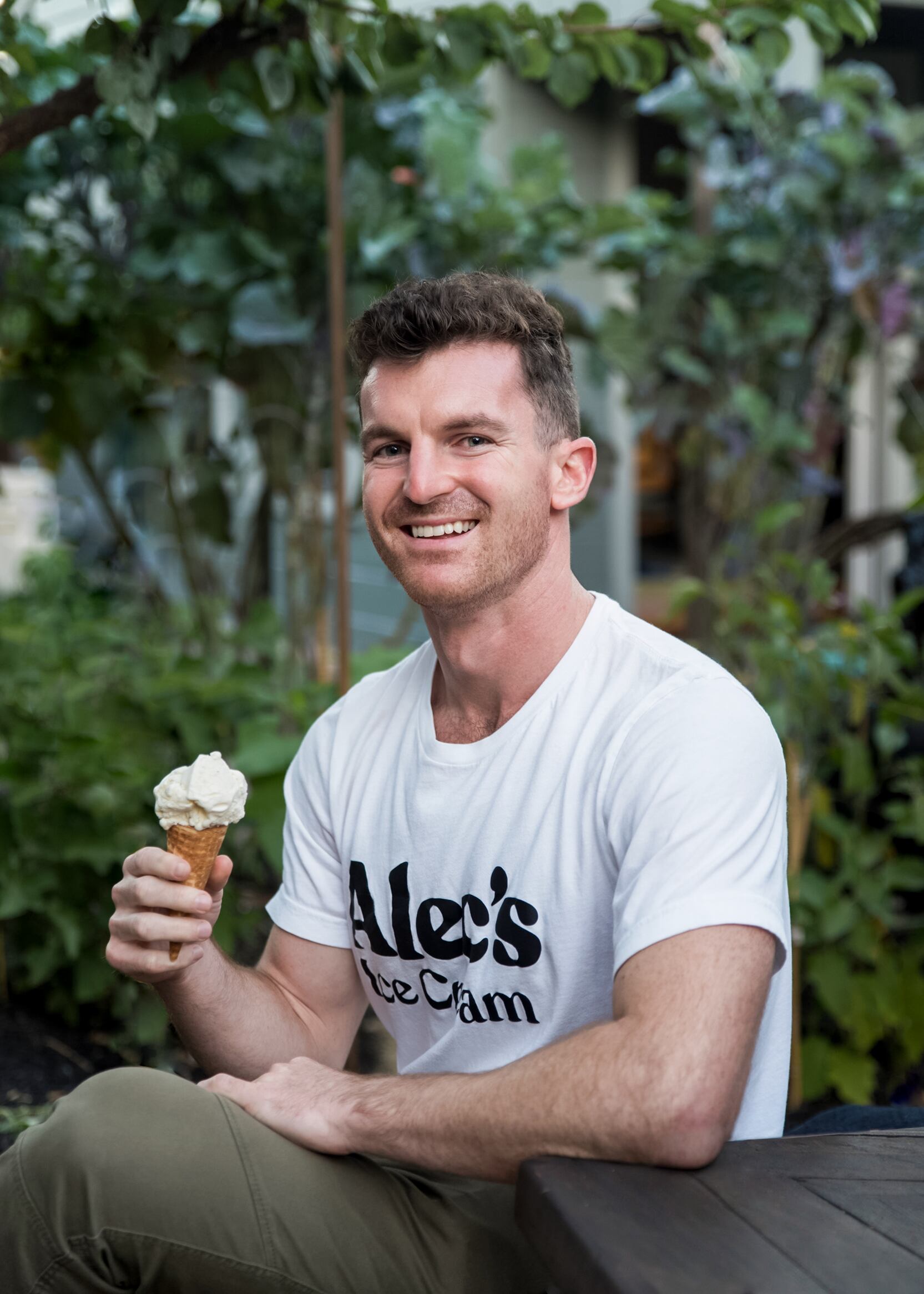
Jaffe is referring to the COVID-19 pandemic, which impacted dairy in both demand and supply terms.
“The organic cream market in particular was really challenged because people were cooking more at home, they were using more butter, so it was really hard to source dairy, especially with the requirements and the quality standards that we have,” he explained.
“And the way people shopped changed – more were shopping online – so when we couldn’t do in-store sampling, it was very hard to get discovered as a non e-commerce brand.”
As for quality standards, there are many: Alec’s Ice Cream uses exclusively organic A2 milk – known for being easier to digest – and the company’s products are also Regenerative Organic Certified.
Taken together, Alec’s Ice Cream is the only ice cream brand in the US to combine ROC certification and organic A2 dairy credentials.
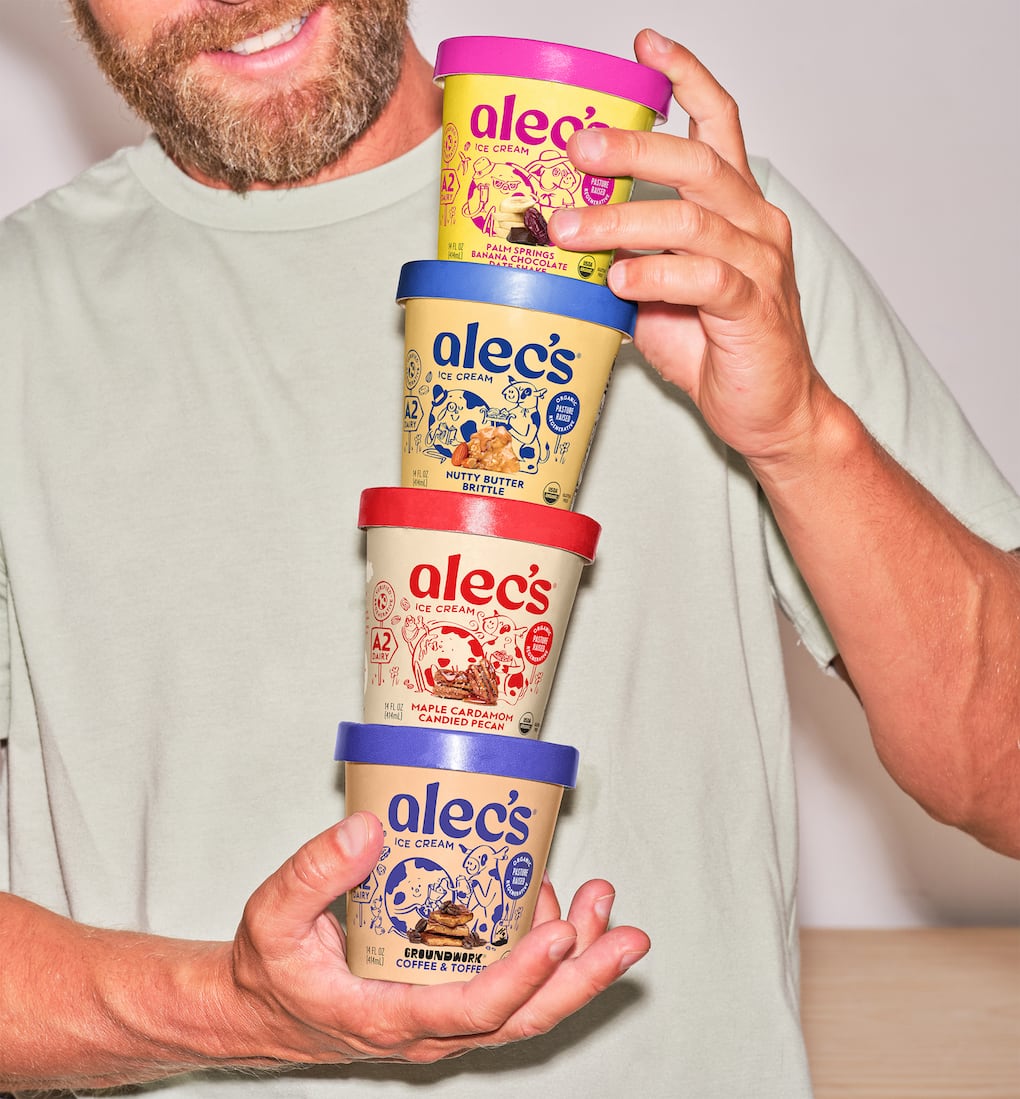
But several years ago, the firm may have been too early on the block with that type of sustainable proposition.
“We were very early on these trends of regenerative agriculture, of A2 dairy, and really, this idea that’s now very popular: of better-quality dairy and the nutritional value of high-quality dairy, “Jaffe said. “There’s a learning of the challenges that come with being early, or the first, to a trend in the category.”
“When I was getting started, everyone was asking me, ‘Why aren’t you making a plant-based ice cream?’ Because that was popular at the time.”
Alec Jaffe, founder and CEO, Alec's Ice Cream
In 2025, plant-based dairy sales are in decline; while natural food brands like Alec’s Ice Cream are flying off the shelves.
For Jaffe, doing ‘regenerative’ the right way is crucial to build brand equity and deliver what consumers seek out.
“We work with third-party certifiers like Land to Market and Regenerative Organic Certification. It’s really important for people to trust that we do the work. With ‘regenerative’, as it becomes more popular, there are going to be brands who just claim [to be ‘regenerative’] without actually doing the work.
“You can buy a container of our ice cream just because it’s an interesting flavor – but then you’re also supporting regenerative farms and building the regenerative dairy supply chain. You don’t have to ‘sacrifice’ flavor in order to support regenerative farming.”
Third-party verified
98% of Alec’s Ice Cream's base ingredients are certified and verified regenerative organic.
By purchasing regenerative cane sugar, the company says it's kept about a tonne of synthetic fertilizer from going into the ground; removed about 4 tonnes of CO2 from the air, and restored 7.3 acres of land to resemble virgin forests.
(Via Land to Market)
Even so, sustainability credentials may not be that crucial to the vast majority of shoppers. “If I go to most people shopping in the grocery store, they may not know what A2 or regenerative is – but more and more are starting to understand [the terms]," he said.
“We are at a turning point in both of those trends: where like the early-adopter consumers, more of those [regular] consumers are starting to be familiar.”
For most consumers, it’s taste that matters most. “People still want indulgent pints,” Jaffe said. “They are ultimately just looking for products to feel good about and indulge in.
“And that’s something that we really try to keep in mind: we want our product to be functionally beneficial and something that someone can feel good about buying.
“But ultimately, it’s ice cream.”
Culture Cup: Revolutionizing good-for-you ice cream
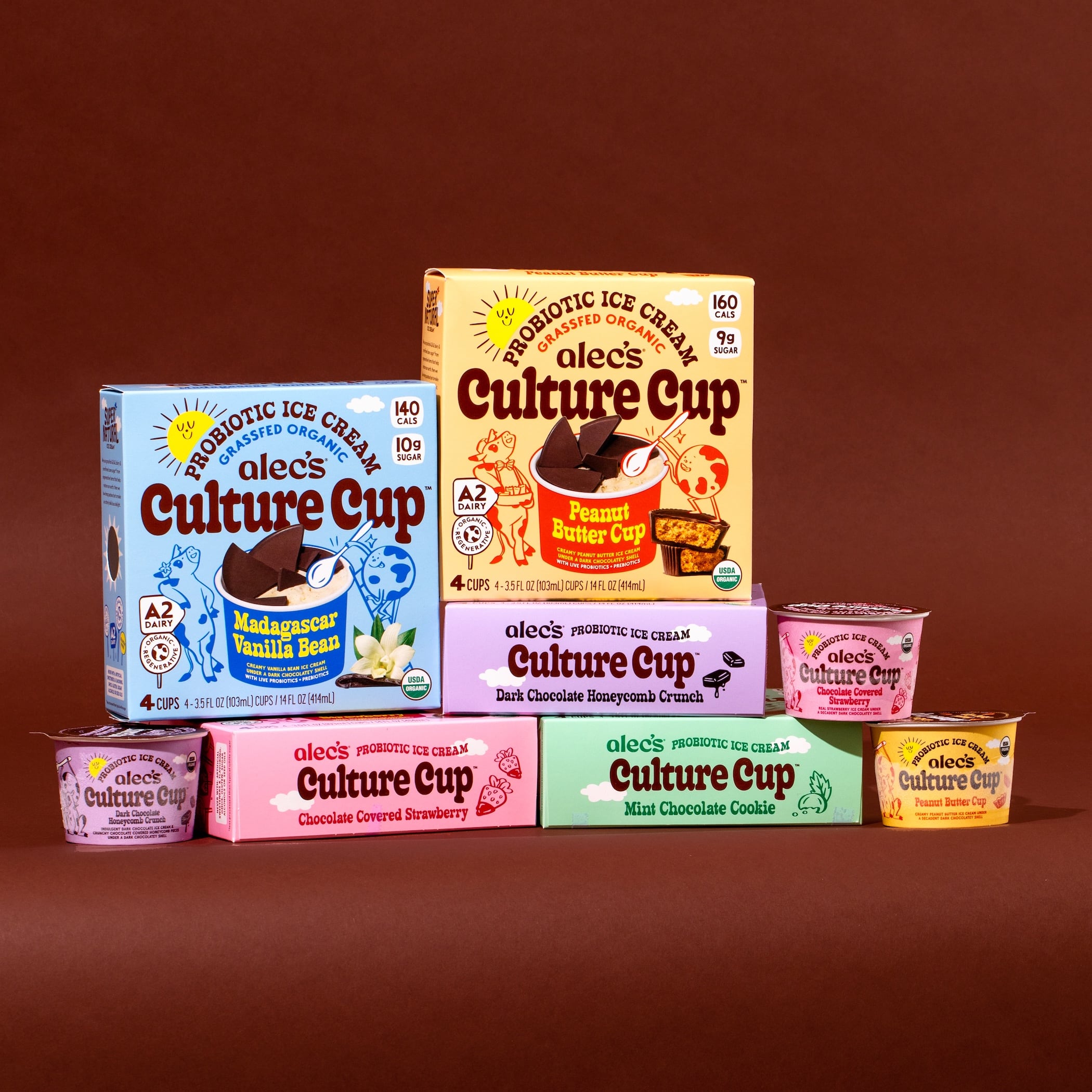
Alec’s Ice Cream is not just about taste and sustainability, either: it ticks a third box: healthy indulgence.
Culture Cup – a frozen novelty range that packs pre- and probiotics into ice cream filled under a crackable dark chocolate shell – has taken better-for-you ice cream by storm. Launched in May 2025, the company has struggled to keep up with demand, with consumers finding the mix of the fun, snap-me-up chocolate shell combined with gut health and clean-label ice cream hard to resist. (The company majors on non-GMO claims; does not use artificial sweeteners and flavors nor seed oils, gluten and sugar alcohols.)
“It’s been incredible,” Jaffe told us of the reception the range has enjoyed.
“We put it on shelf the first week at Whole Foods, and it was selling out instantly. I remember the week it launched at Whole Foods, I went to their flagship store in Austin to do a demo, and it was the most successful sampling I’ve ever done. You could just see instantly that people were excited about the product, the branding was pulling them in and when they tried it, they loved it.”
“People try better-for-you products and almost expect them to taste not as good. And we were able to deliver a really wowing flavor and sensory experience that just won people over.”
“It turned it into something that they couldn’t wait to buy,” Jaffe summed up.
Growth ambitions
Now, the challenge is to keep up with demand and keep consumers excited about the company’s offering. “We’re really focused on just continuing to grow and build on the momentum that we have,” he said. “How do we keep growing with what we’re doing and how do we keep expanding and getting the product into more stores? And also really importantly, building deeper partnerships with the retailers that have supported us from the beginning.”
At the start, Alec’s Ice Cream was stocked by local retailers “and myself going and stocking the shelves,” Jaffe revealed. Now, the brand’s pints and frozen novelty products can be bought from around 2,000 stores across the US. “You can find us in retailers like Whole Foods, Target, Sprouts, Natural Resources, Wegmans, Fresh Market, Fresh Thyme,” Jaffe said.
What does the future hold – and does a protein proposition feature in the company’s plans?
“If there is one way forward, it’s taste,” Jaffe said. “[The reason] why Culture Cup works is because it tastes good. And then it’s delivering on these trends that make people feel good about it.
“Consumers care about health; they are more conscious of what they’re buying. But ultimately, they want that indulgent moment. It’s about delivering indulgence in a way that speaks to where the health-conscious shopper is going.”
Climate Smart Food: Understanding climate change risks
Want to know more about how the food and beverage industry can futureproof itself against climate change? Check out FoodNavigator's Climate Smart Food broadcast series.
Taking place September 9, 16 & 23, Climate Smart Food is a free webinar series designed to inform food and beverage manufacturers about how to tackle climate risk with real-world strategies: from smart farming and resilient ingredients to low-impact packaging and emissions reduction. Viewers will hear from industry leaders and innovators from organizations like Nestlé, ING Bank and Heineken UK.
Climate Smart Food will also be available on demand if you are unable to join on the day - but make sure you register for free to gain access.

